I wish to report of a number of tweaks and additions to the hand silhouette tracker I posted a while back. First is the ability for it to “snap” to the object using a simple Active Snake method, another is a more advanced resampling technique (the older tracker always resampled after every frame), and of a number of optimizations to increase the speed (tracker now runs at real-time on a single core).
Category: graphics
For those of you using OpenCV that are looking to upgrade from OpenNI 1.x to the new OpenNI 2.x, here’s a bit of code to make life a tiny bit easier. It simply wraps the OpenNI 2.x APIs to expose a simple frame grabber for OpenCV.
 So animated gifs are awesome if you’re writing a software blog. It saves all this time working with YouTube embeddings and stuff, and your “videos” are stored locally. The simplified FFMPEG writer was before unable to output animated GIFs, but I’ve tweaked it and now it does. It’s also a nice piece of code to learn how to FFMPEG in C.
So animated gifs are awesome if you’re writing a software blog. It saves all this time working with YouTube embeddings and stuff, and your “videos” are stored locally. The simplified FFMPEG writer was before unable to output animated GIFs, but I’ve tweaked it and now it does. It’s also a nice piece of code to learn how to FFMPEG in C.
 I wanna share some code for 2D curve tracking with a particle filter, implementing the body of work of Tony Heap and David Hogg. These guys presented a relatively easy to implement method for tracking deformable curves through space and change in form using a Hierarchical Point Distribution Models (HPDM), which is another elegant way to store shape priors. Granted, it is not perfect, but for a simple 2D shape like a hand it works pretty good, and rather fast as well.
I wanna share some code for 2D curve tracking with a particle filter, implementing the body of work of Tony Heap and David Hogg. These guys presented a relatively easy to implement method for tracking deformable curves through space and change in form using a Hierarchical Point Distribution Models (HPDM), which is another elegant way to store shape priors. Granted, it is not perfect, but for a simple 2D shape like a hand it works pretty good, and rather fast as well.
Let’s dive in then,
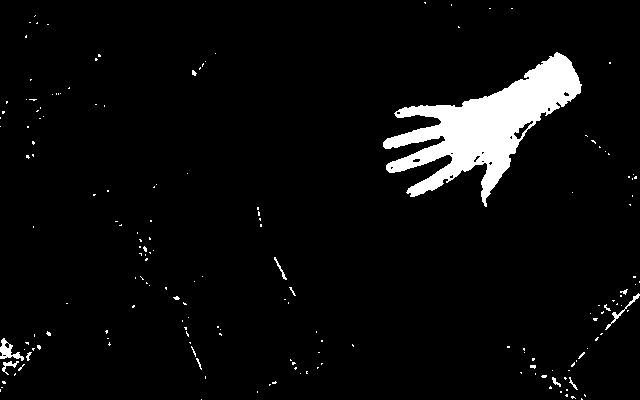
 Sharing a bit of code I created for skin detection.
Sharing a bit of code I created for skin detection.
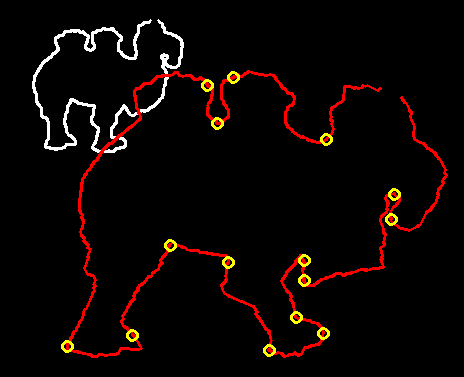
 Hello,
Hello,
I wanna share some code I’ve been working on lately that implements smooth shape manipulation using Moving Least Squares. More specifically, the excellent simple and powerful method by Schaefer et al. from Texas A&M and Rice universities (great paper). The method was written for image deformation but very straightforward modifications made it work perfectly for 2D shapes and open curves.
Let’s get down to business
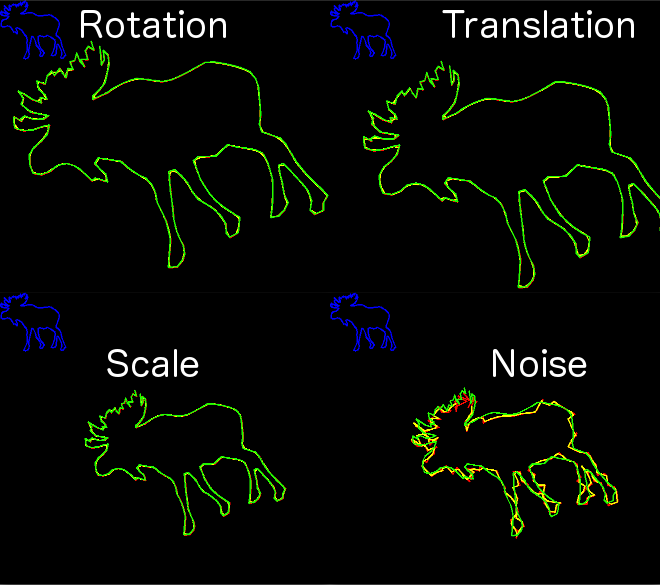

Just sharing some code and ideas for matching 2D curves. I was working for a while on matching 2D curves to discover shapes in images, but it didn’t work out, what did succeed is this 2D curve matcher that seems to be very robust for certain applications. It’s based on ideas from the Heat Kernel Signature and the CSS Image (that I introduced in my latest post), all around inspecting curves under different level of smoothing.
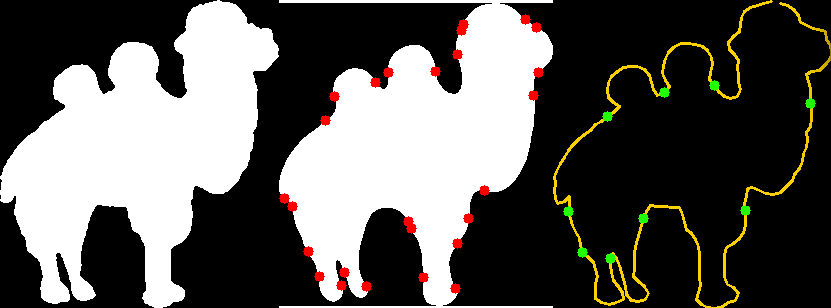

I’m so glad to be back to work on a graphics project (of which you will probably hear later), because it takes me back to reading papers and implementing work by talented people. I want share a little bit of utilities I’ve developed for working with 2D curves in OpenCV.
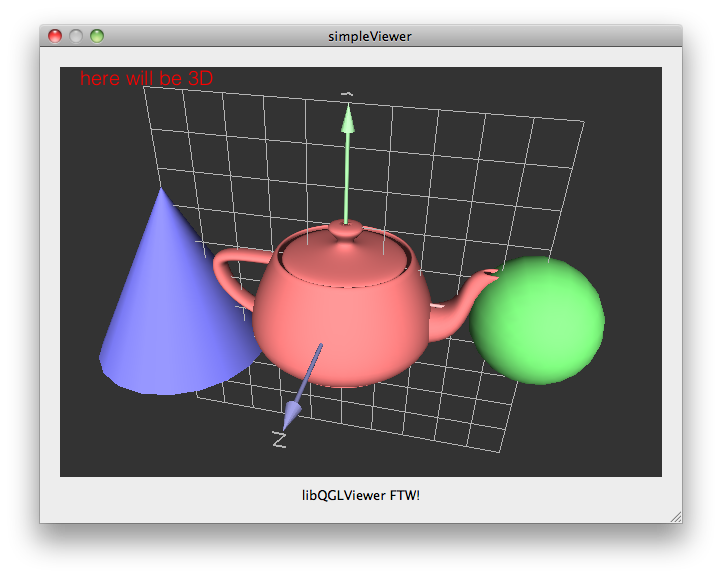
 While looking for a very simple way to start up an OpenGL visualizer for quick 3D hacks, I discovered an excellent library called libQGLViewer, and I want to quickly show how easy it is to setup a 3D environment with it. This library provides an easy to access and feature-rich QtWidget you can embed in your UIs or use stand-alone (this may sound like a marketing thing, but they are not paying me anything 🙂
While looking for a very simple way to start up an OpenGL visualizer for quick 3D hacks, I discovered an excellent library called libQGLViewer, and I want to quickly show how easy it is to setup a 3D environment with it. This library provides an easy to access and feature-rich QtWidget you can embed in your UIs or use stand-alone (this may sound like a marketing thing, but they are not paying me anything 🙂
This is based on the library’s own examples at: http://www.libqglviewer.com/examples/index.html, and some of the examples that come with the library source itself.
Let’s see how it’s done
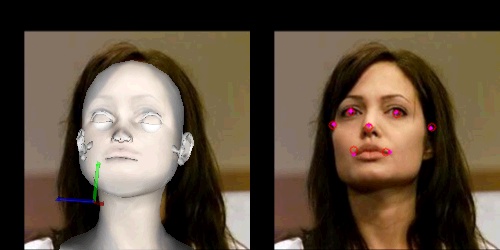
 So I was contacted earlier by someone asking about the Head Pose Estimation work I put up a while back. And I remembered that I needed to go back to that work and fix some things, so it was a great opportunity.
So I was contacted earlier by someone asking about the Head Pose Estimation work I put up a while back. And I remembered that I needed to go back to that work and fix some things, so it was a great opportunity.
I ended up making it a bit nicer, and it’s also a good chance for us to review some OpenCV-OpenGL interoperation stuff. Things like getting a projection matrix in OpenCV and translating it to an OpenGL ModelView matrix, are very handy.
Let’s get down to the code.